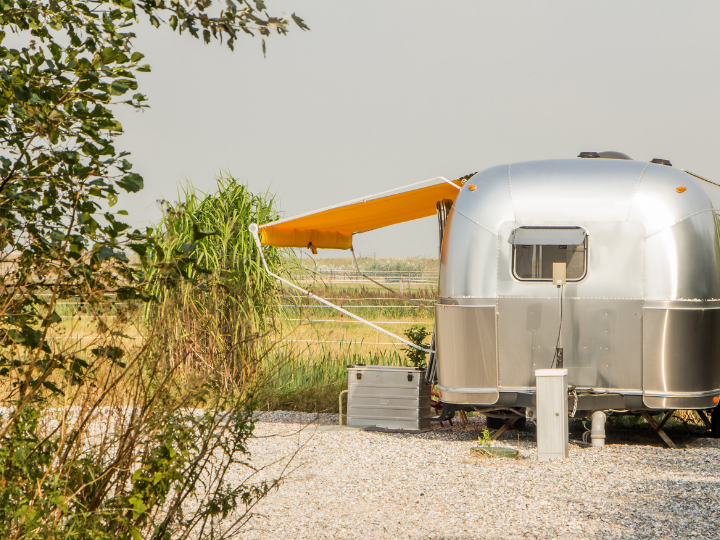Prepare Your Home for a Power Outage in 6 Steps
January 3rd, 2023
Power outages can happen anytime and have many consequences, from being a simple inconvenience to a dangerous situation. For example, a power outage could be life-threatening for medical equipment. Even in less dire situations, power outages can cause food in refrigerators and freezers to spoil, disrupt communication and transportation, and make it difficult to stay warm or cool.
As a homeowner in Ontario, preparing for unexpected power outages is essential. Having a plan and the necessary supplies can help you and your family weather a power outage safely and comfortably. In this article, you will learn specific steps to prepare your home for a power outage in Ontario.
6 Steps for Preparing Your Home for a Power Outage
As a homeowner in Canada, you know various factors, including severe weather, accidents, and equipment failure can cause power outages. While you cannot always prevent a power outage, you can take steps to protect your home and ensure the safety and comfort of your family.
From gathering essential supplies to investing in alternative power sources, there are several steps to prepare for a power outage. By following the guidelines below, you will be better equipped to handle the unexpected and minimize disruptions to your daily life.
Step 1: Gather Necessary Supplies
Gathering necessary supplies is an essential step in preparing for a power outage. Here are some items you should consider including in your emergency kit:
- Flashlights and batteries – Have a reliable light source in case of a power outage, especially if you need to navigate your home in the dark. Stock up on extra batteries as well.
- Non-perishable food and water – It is a good idea to have enough food and water to last for at least a few days in case of an extended power outage. Non-perishable items like canned goods, crackers, and granola bars are good options. Do not forget a manual can opener if you have canned goods in your kit.
- First aid kit – A well-stocked kit is essential in any emergency. Make sure to include bandages, gauze, pain medication, and other items you or your family might need.
- Warm blankets and clothing – If a power outage occurs during winter, staying warm is essential. Make sure to have plenty of blankets and warm clothing on hand.
- Phone and other communication devices – Have a charged phone with emergency charging devices.
- Cash – If the power outage lasts for an extended time, ATMs and credit card machines may not function. It is a good idea to have some money on hand.
In addition to the items listed above, you may also want to consider adding other items to your emergency kits, such as candles, matches, a manual or hand-crank radio, and a whistle to signal for help. Keep your emergency kit in a convenient, easy-to-reach location and update it regularly to ensure it contains all the necessary items, such as flashlights and batteries.
Step 2. Secure Alternative Power Sources
In a power outage, it is crucial to have a backup plan for powering your home. Here are a few options to consider:
- Generator – A generator can provide a reliable source of electricity during a power outage. There are different generators to choose from, including portable generators and standby generators. Portable generators can be easily moved to other locations, while standby generators are permanent and automatically turn on when power is lost.
- Solar panels – If you are looking for a more sustainable option, solar panels can provide an alternative power source during a power outage. Solar panels collect energy from the sun and convert it into electricity to power your home.
- Hand crank or battery-powered radio – A radio can be a valuable source of information during a power outage by providing updates on the outage and any emergencies. Consider investing in a hand crank or battery-powered radio to stay informed, even if the power goes out.
- Propane heater – If a power outage occurs during the winter, a propane heater can be a good source of heat. Follow all safety guidelines and only use a propane heater if it is safe. Space heaters are ideal for short periods of heating.
It is a good idea to consider a combination of these options to ensure you have a backup plan.
Step 3. Take Care of Essential Appliances and Electronics
Protect your appliances and electronics during a power outage. First, unplug electronics such as computers, TVs, and appliances with electronic controls. Unplugging appliances protects them from power surges when the power is restored. Additionally, it is a good idea to turn off and unplug appliances like stoves, ovens, and washing machines.
Finally, keep the doors closed as much as possible to maintain the temperature inside your fridge and freezer. Following these guidelines can help protect your appliances and electronics during a power outage. You will help keep your food fresh for as long as possible.
Step 4. Protect Your Pipes
Protecting your pipes during a power outage is essential. The first step is to insulate them, especially if you have pipes in unheated areas of your home, such as basements or attics. Additionally, if a power outage occurs during cold weather, allowing faucets to drip can help prevent freezing pipes from bursting.
Open the faucets slightly to allow a small trickle of water to flow through the pipes, which can help prevent the water inside from freezing and causing damage. These precautions can help protect your pipes during a power outage and avoid costly damage to your home.
Step 5. Stay Informed
It is important to know who to contact during a power outage, such as your local power company or emergency services. It is also good to keep a list of significant phone numbers, including the number for your local power company, emergency services, and any other contacts.
Additionally, staying up to date on weather forecasts and power outage updates can help you plan for any potential disruptions and take necessary precautions. By staying informed, you will be better prepared to handle any emergencies that may arise during a power outage.
Step 6. Review Your Homeowner’s Insurance
Homeowner’s insurance can protect you in case of a power outage by covering the cost of damages or losses resulting from the outage. For example, if a power surge damages your appliances or electronics, your homeowner’s insurance policy may cover the cost of repair or replacement. Similarly, if a power outage causes your pipes to freeze and burst, resulting in water damage to your home, your homeowner’s insurance policy may cover the cost of repairs.
Review your homeowner’s insurance policy to understand what is covered and not covered in the event of a power outage. Some policies may exclude certain damages or losses, such as food spoilage or loss of business income. In these cases, you may need additional coverage or endorsements to ensure adequate protection.
Conclusion
By gathering necessary supplies, considering alternative sources of power, taking care of appliances and electronics, protecting your pipes, and staying informed, you can protect your home and ensure the safety and comfort of your family during a power outage. Do not wait until the power is off to start preparing. Take the time to create a plan and gather the supplies you need to weather a power outage safely and comfortably.
Ensure you have the proper homeowner’s insurance coverage in place. At Duliban Insurance, a team of insurance professionals can help you understand your coverage options and ensure protection in a power outage or other emergency. Contact Duliban Insurance today to learn more.












